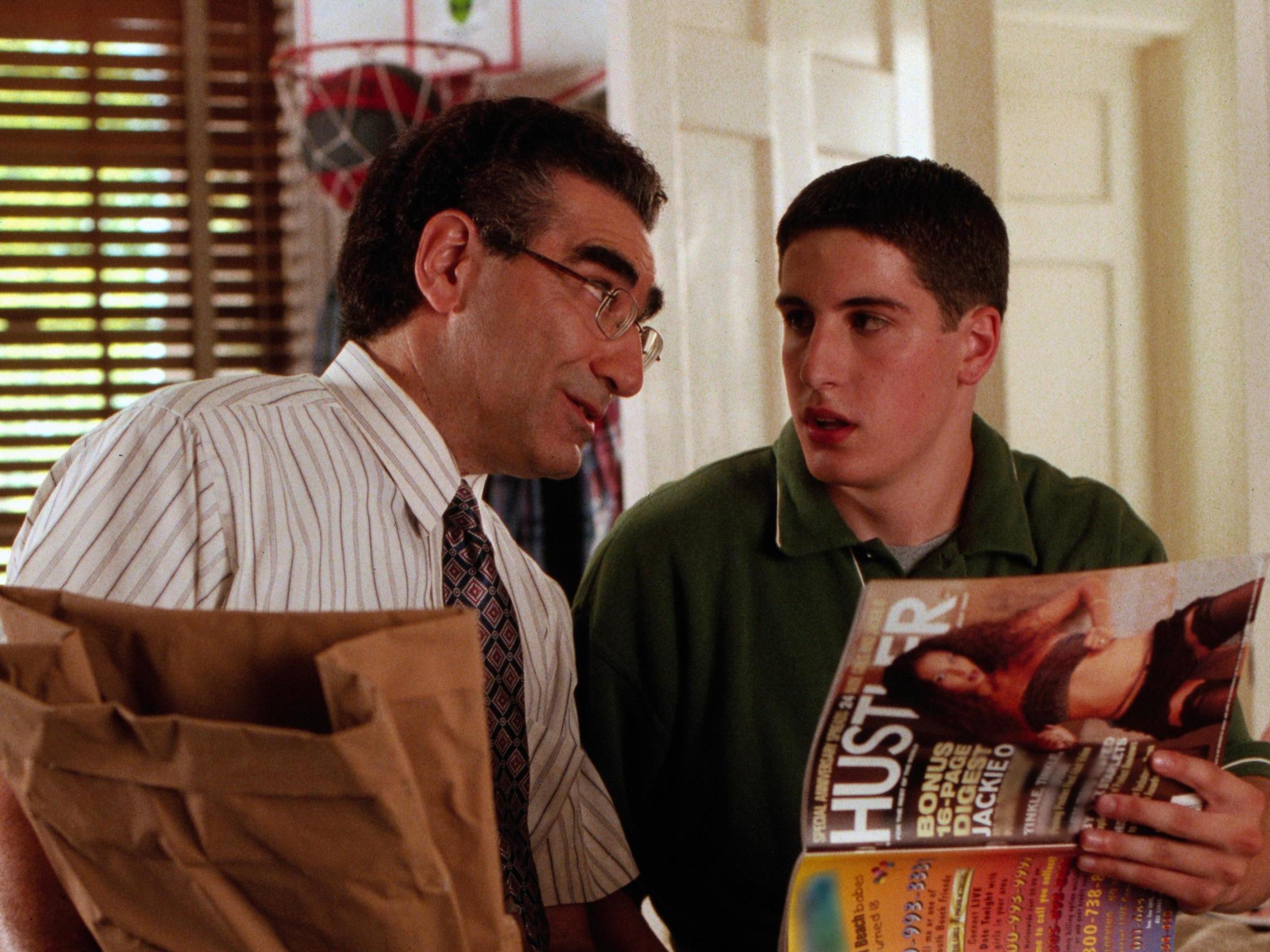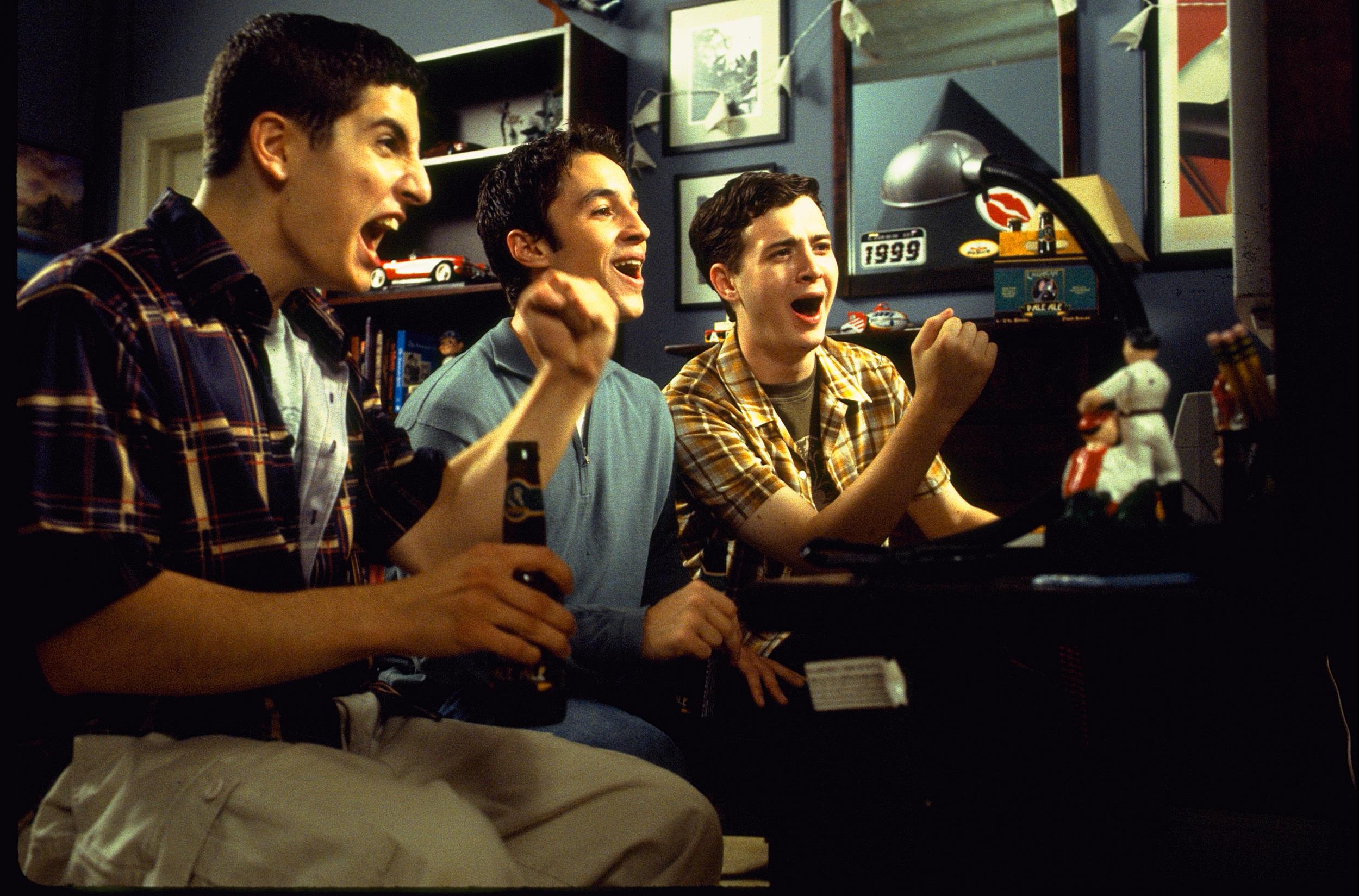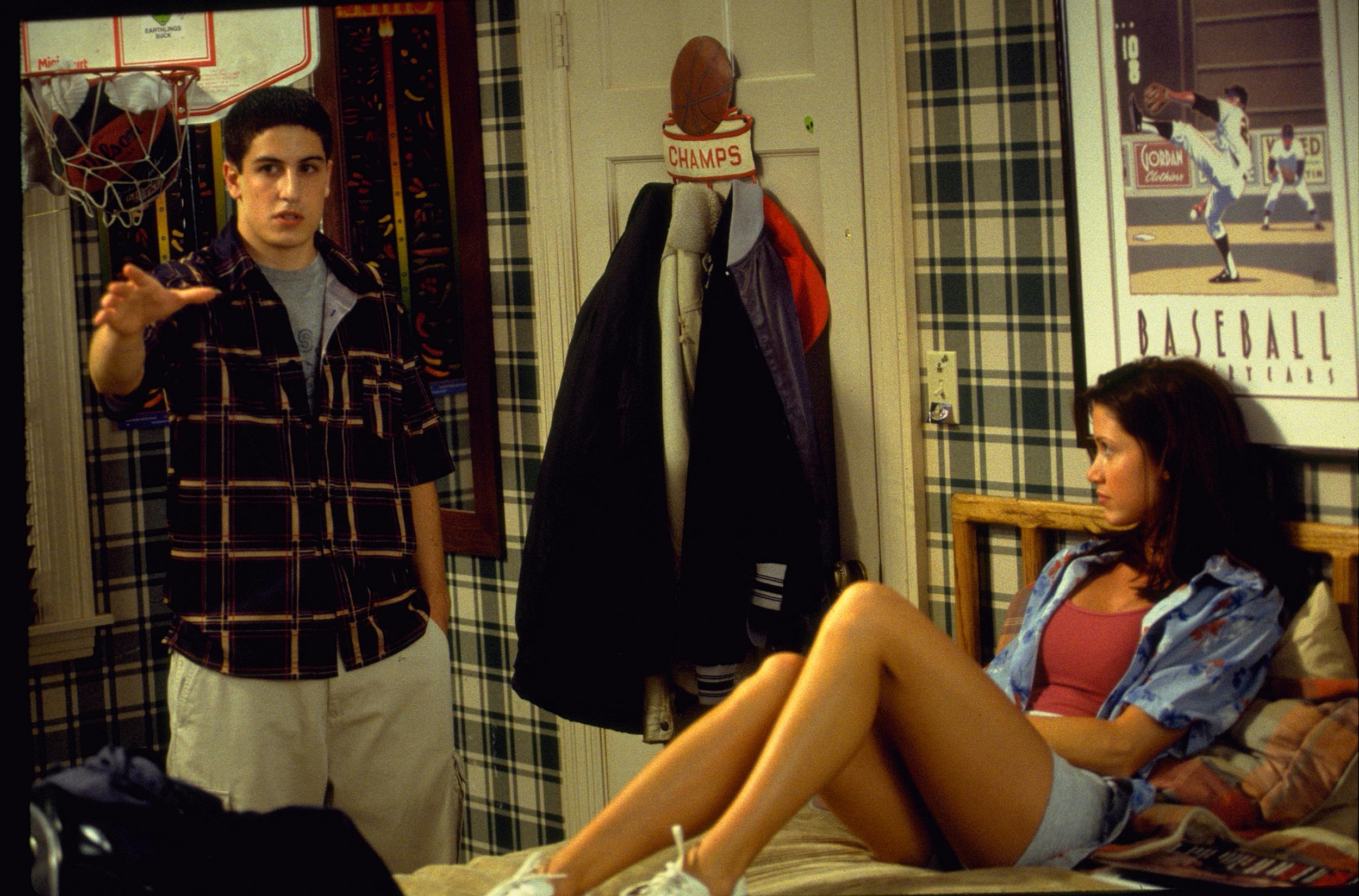American Pie wouldn’t get made today – according to its director, that’s ‘probably a good thing’
On the 20th anniversary of one of cinema’s most beloved teen sex comedies, Ralph Jones explores the film’s inspiration, its legacy, and the one scene the creators regret


Adam Herz grew up on teen sex comedies. Porky’s, Revenge of the Nerds, Risky Business, Fast Times at Ridgemont High: those are the ones the American Pie screenwriter remembers most from his childhood in the Eighties. “Most of them were stupid,” he says. The male characters tended to be front and centre; and one of the attractions for a teenage boy was that “you might see a boob”. But he loved them. As a film student, he would use them as subjects for tongue-in-cheek papers: an essay, for example, on how gender roles are defined by the shower scene in Porky’s (in which the guys all spy on the co-ed girls showering in their locker room).
But by the time the Nineties came around, the raunchy teen sex comedy genre had vanished – partly, Herz says, because it had been exhausted. But also because “Hollywood had forgotten that teenagers were an audience. They had stopped catering to them.” He decided that the genre was due a comeback. Bagging a manager when he graduated and moved to LA in 1996, Herz pitched his only feature film idea: East Grade Falls High. The world would later come to know it as American Pie.
Like many box office smashes (the film made $235.5m, or £191m), it used a familiar idea – a bunch of high school guys all want to lose their virginity – but treated it in a novel way. “American Pie was a groundbreaking teen romantic sex comedy,” says David Lawrence, who composed the music for the film. “It broke the mould, and broke it for a good 10 years afterwards, where everybody just wanted to make their version of American Pie.”
But 20 years on, so much has changed – taste in films, conversations about gender, the treatment of people of different sexualities – that watching the film now is to see it in a different light. It can be futile looking at yesterday’s films through the unforgiving lens of today, but there are things in it that now seem self-evidently tasteless. Stifler, the insensitive jock of the group, casually grabs a girl’s bum at a party; he implies that his friend Oz is gay because he sings; and Stifler’s mum’s identity hinges entirely around her being a Milf.
Unlike Herz, Chris Weitz, who co-directed the film with his brother Paul, didn’t grow up on the genre. “I really hadn’t seen any of these movies,” he says, speaking on Skype while he walks on a treadmill. “So I wasn’t tied to any particular genre tropes.” And believe it or not, the Weitzes were actually quite prudish. “This was not second nature to us,” he says.
I ask Herz if he thinks that male writers – films in this genre are almost always written by men – are in any way trying to live vicariously through their characters, having the high school experience they wish they’d had, full of titillation and sexy women. “It wasn’t a wish fulfilment kind of thing; it was honestly just wanting to emulate a genre that I really liked,” he says. “And it wasn’t really the boobies that I wanted to do at all. You had to have a little bit of gratuitous nudity. That was the convention.”
But that doesn’t excuse the way in which one particular sequence is handled. Male characters getting a sexual thrill out of spying on girls was an unfortunate trope of the Eighties teen sex comedy. There was the aforementioned scene in Porky’s; John Belushi’s Bluto climbing up a ladder to watch a girl undressing in Animal House; and the boys putting surveillance cameras in girls’ dorm rooms in Revenge of the Nerds. “They were always the best scenes in those movies,” Herz claims. At the time, the thinking was, “Guys wanna see boobs and that’s OK.”
So he decided it would be stupid not to include a similar scene in American Pie. One of his housemates had just bought one of the very first webcams, and it gave him an idea. Jim, who would go on to become the franchise’s main character, has Czech student Nadia over to “study”. He excuses himself while she changes. Unbeknownst to her, he has set up a webcam in his bedroom and, in emailing the link to his friends, accidentally sends it to all of the students at the school. (When Jim expresses doubts about filming Nadia, Stifler tells him to “get some f***ing balls”.) Nadia strips to her knickers and masturbates to a porn magazine on Jim’s bed.

Our understanding of consent is now mature enough for us to know this scene involves a crime. It seemed innocuous at the time, says Weitz. “Now it seems completely pernicious. You wouldn’t do that, and the characters who would do that would rightly be seen as violating the rights of the people they were doing it to. That’s probably the one element of the film that I regret. It felt at the time almost that it was like a sacrifice to the god of teen sex movies.” Did anyone at the time have any objections? “If people weren’t comfortable about it they weren’t voicing it as such,” he says. Richard Crudo, the film’s director of photography, was one of the few people who saw the scene being filmed at the time. “It was handled very respectfully and very gently,” he says.
At the time, there were plenty of female executives in senior positions at Universal, and they apparently expressed no concerns about the scene. Herz says that the executives were keen that the female characters were given enough time, but that they also gave notes about the female actors needing to watch their weight. “It wasn’t evil or moustache-twitching,” he says. “They had to sell movies, and at the time, sexy women sold movies.”
The upshot of the scene is that all the students see Jim ejaculate prematurely when he touches Nadia. He becomes the laughing stock of the school. Both Weitz and Herz insist that Jim getting his comeuppance balanced the scales a little. But Nadia is sent back to the Czech Republic as a result of the scandal. “We were like, ‘We can’t use this character any more in the story’,” says Herz. “’What’s the easiest way to dispose of the character?’” The fact that Nadia suffers infinitely more serious consequences than Jim clearly makes the scene even worse. “Now I watch that scene and I cringe,” says Herz.
Shannon Elizabeth, who played Nadia, said recently about the scene, “If this had come out after the #MeToo movement, there would definitely be a problem. I think that it would have gone down differently.”

Some of the attitudes of those involved have changed more than others. Crudo says that “Nadia is pretty much in control through her entire arc”, perhaps forgetting the terrible price she pays. “We have to stop taking ourselves so seriously, to a certain extent, and this movie is hysterically funny in very, very many ways that are not provocative and not necessarily incendiary.”
It’s difficult to deal in hypotheticals, but I wonder how American Pie would be received in 2019. Weitz says that $10m movies with no pre-existing intellectual property aren’t made by the big studios any more. American Pie would now be released on Netflix or Amazon, he thinks. Another reason why it would be a “tricky proposition nowadays”, he adds, is that every single main character in the film is white.
He cites Olivia Wilde’s Booksmart as a welcome example of a film that looks at similar teenage themes but through a female lens. “I feel lucky that we were able to make the movie when we did but I’m very conscious that that was a particular place and time. Times change, and I actually think we’ve got a better handle on these issues than we did then. I would be very surprised if a movie like this were released nowadays. And I think that’s probably a good thing.”
Join our commenting forum
Join thought-provoking conversations, follow other Independent readers and see their replies
Comments
Bookmark popover
Removed from bookmarks